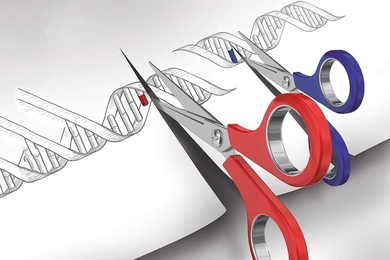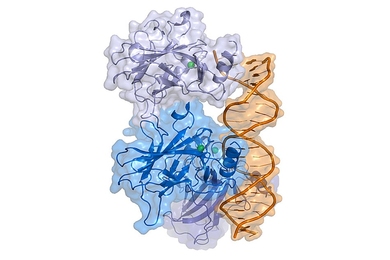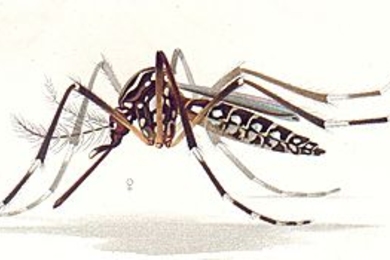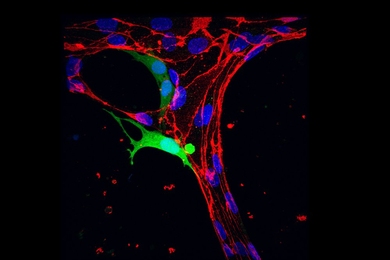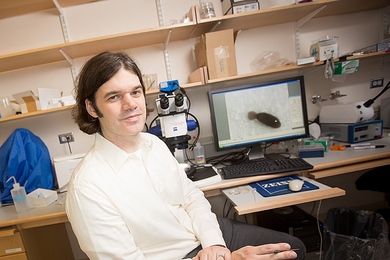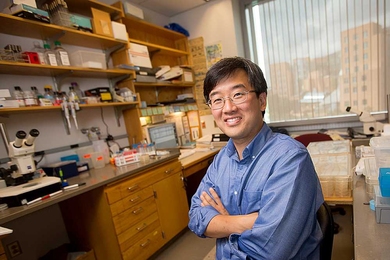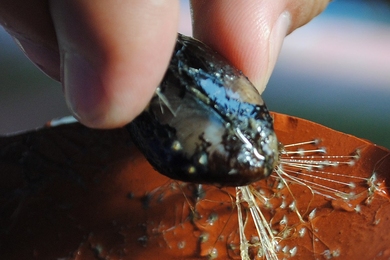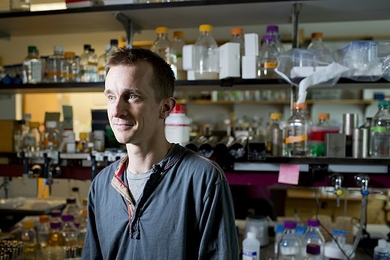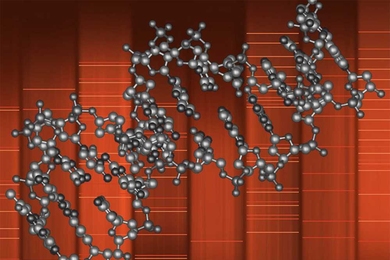Biologists ID new cancer weakness
Drugs that block new target gene could make many tumors more vulnerable to chemotherapy.
Military medicine
Senior Laura Lu’s years at MIT have included cancer research, ROTC leadership, and prosthesis trials — and she aims to put her talents to use one day as a Navy surgeon.
New view of dengue fever
Mice with human immune cells help researchers discover how the mosquito-borne virus depletes blood platelets.
Watching tumors burst through a blood vessel
A microfluidic platform provides a high-resolution view of a crucial step in cancer metastasis.
How old memories fade away
Discovery of a gene essential for memory extinction could lead to new PTSD treatments.
Chris Kaiser to step down as provost, return to the faculty
After nine years as a departmental and Institute administrator, biologist plans to return to his longtime interests in teaching and research.
Solving the mysteries of regeneration
Biologist Peter Reddien seeks to understand planarians’ famous ability to grow new body parts.
A worm’s-eye view of immunity
Biology professor Dennis Kim seeks to understand the physiology and evolution of host-microbe interactions by studying a simple worm.
The brains behind research on the brain
Mehmet Fatih Yanik develops tools to answer some of the central questions in neuroscience.
Chisholm awarded the Ramon Margalef Prize in Ecology
Award is one of the most prestigious in ecology and environmental sciences
Just hanging on: Why mussels are so good at it
Understanding the strength of the shellfish’s underwater attachments could enable better glues and biomedical interfaces.
Unraveling bacterial behavior
Michael Laub studies the complex interactions that underlie cells’ responses to their environment.
Detecting DNA in space
Researchers, in a step toward analyzing Mars for signs of life, find that gene-sequencing chip can survive space radiation.
Reading DNA, backward and forward
MIT biologists reveal how cells control the direction in which the genome is read.
